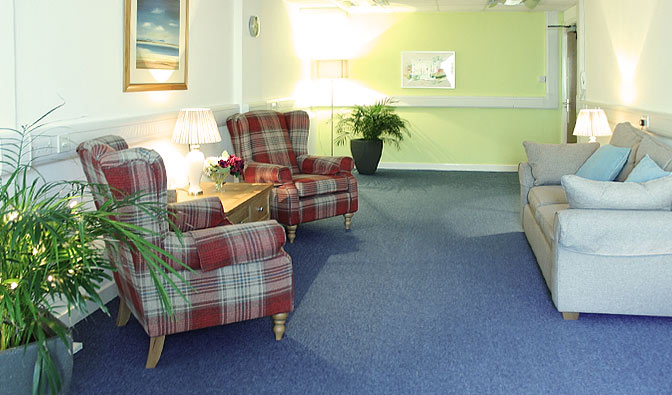
Couples and Family Therapy
We have psychotherapists who are able to offer Couples Therapy, helping couples to work through individual issues which may impact upon the couple relationship or support with couple dynamics which cause pain and distress to the couple. This may involve exploring ways of relating, informed by past attachment experiences.
Couples seek relationship counselling for a number of reasons Some of the issues covered by our therapists include:
Loss of Intimacy - Perhaps you have lost closeness in the relationship and this has affected your sex life; or it may be that you just find it difficult to connect on an emotional level.
Infidelity or Affairs - It can be very hard for infidelity or an affair to be discovered in a relationship. Relationship counselling will explore what had been going on in the relationship just before the affair began in order to better understand what led the parter to seek comfort elsewhere. Whilst it can be difficult to consider, affairs usually happen because of an underlying difficulty in the couple relationship. Couples therapy will provide a safe space where all of this can be explored.
Couple therapy can help people open up some of the issues that are troubling them. Couples who come together open up communication between them so that they can understand the underlying issues in order to resolve the difficulties they are experiencing and find an agreed way forward. Problems with relationships can be complicated and sometimes they stem from challenges you may have experienced in your childhood as well as current concerns. Relationship therapy can be helpful in this situation for both individuals and couples, as it looks at what lies behind current difficulties, paying attention both to the past and the present in order to bring about change.
Couples therapy can help you to improve:
- Emotional wellbeing
- Stress
- Better communication
- A more stable family life
- Parenting
- Self-discovery
- Improved sexual relationships
- Greater understanding of their own and partner and the differences between you.
- Reducing jealousy
- Increasing their confidence
How does it work?
Couple therapy helps by reducing the kinds of things that make partners feel alone and isolated, or which push partners apart and make then feel angry with each other. It improves your relationship by helping you both to work together on the things that create unhappiness and move on from stuck and sometimes hostile patterns of interaction. It helps you to understand each other on an emotional level as well as a practical one. It gives you skills to work together and can lead to a happier more fulfilling relationship.
Couple therapy can help you achieve:
- Better communication and ability to work together
- Greater awareness of each others needs
- Greater understanding of each other and the difference between you
- A better sense of closeness between you
- Being less stuck in repeating patterns
- Help with coming to terms with the changes such as the arrival of children, bereavement or separation
- Greater confidence about the future
- An improved sexual relationship, if this is needed
What will it cost?
Couples Therapy Sessions: £100 for 1 hour
Couples Intensive Recovery Session: £190 for 2hrs
Family Therapy £130 for 75 minutes
It is usual for the full fee to be charged for missed sessions.
Length and Frequency of Therapy
Sessions with usually last for 60 minutes and can be weekly or less frequently, such as fortnightly depending on your need. Treatment lengths are usually between 6-20 sessions and this will be agreed between you and the psychotherapist at the assessment stage.
If you are looking for couples counselling or psychotherapy and experiencing difficulties around communication and understanding, our psychotherapists are here to help. Call or text us on 07596177669, or get in touch by email to find out more, or to arrange an initial appointment with one of our therapists.
Contact us by email

Family Therapy
Family therapy can be helpful when there are issues that specifically affect families' mental health and functioning. It can help individual family members build stronger relationships, improve communication, and manage conflicts within the family system. By improving how family members interact and relate to one another, family therapy can foster change in close relationships.
Models of Family Therapy
Here at Whitstable Bay Psychotherapy Service we have a team of psychotherapists who work in the following ways:
Systems Therapy:This type is an approach that focuses on the family as a whole. The systemic perspective – which underpins the practice of most family therapists – views the problems of an individual in relation to the different contexts in which people live: i.e as a partner in a couple relationship, as a family member, a person with particular cultural and/or religious allegiances, while also taking into account socio-economic circumstances and political processes. It is recognised by therapists that the `context’ is of paramount significance for an individual’s psychological development and emotional well-being.
Family therapy focuses on creating a safe environment where family members can openly share what they are feeling and get support from their family. The therapy focuses on treating the system, rather than an individual within the family system. A family therapy session usually lasts 75 minutes, with longer sessions available if needed; the intervals between sessions are from one to several weeks depending on the presented problems, needs of the family members, the stage of the treatment and other variables. Decisions over these matters are negotiated collaboratively with the family members and the psychotherapist.
Although it is hard to estimate and it differs widely, the average length of family therapy treatment ranges between 6 – 20 sessions.
Psycho-education: This is centred on helping family members better understand mental health or psychological distress within the system. This is particularly helpful if perhaps a child or adolescent in the family is receiving individual treatment at Whitstable Bay Psychotherapy Service. The child and family may find it helpful to meet at agreed intervals to discuss how the family can help support the child. By knowing more about treatment options, and self-help approaches, family members can function as a cohesive support system.
Family therapy can be useful in times of crisis and also with regard to long-standing problems. It also serves to prevent problems such as a behavioural difficulty, for example, deteriorating into delinquency or mental health breakdown. Some of the issues or situations at which a family could benefit from family therapy include.
Health problems, particularly chronic physical illnesses or Psychosomatic problems
Child and adolescent mental health
Adult mental health
Psychosexual difficulties
Marital problems including separation and divorce issues
Foster care, adoption and related issues
Family life cycle and transitional stages of life issues
Promoting parenting skills and family functioning
School-related problems
Work-related problems
Traumatic experiences, loss and bereavement
Disruption of family life due to social, political and religious conflicts
Effectiveness
Research suggests that family therapy can be effective for a range of purposes. Some supporting evidence includes:
A 2018 review found that family therapy could be useful in treating adult-focused problems, including relationship distress, intimate partner violence, mood disorders, anxiety disorders, psychosis, alcohol issues, and adjustment to chronic physical illness.
A 2019 study found that family therapy helped improve different areas of family functioning to help teens who were experiencing mental health problems.
One 2019 review found that family therapy demonstrated effectiveness in treating conduct problems, emotional problems, eating disorders, somatic problems, and recovery from abuse or neglect. The study also found that it was useful either when utilized independently or as part of a multimodal treatment program.
Further research is needed to better understand how family therapy may be most effective and how it compares to other forms of treatment.